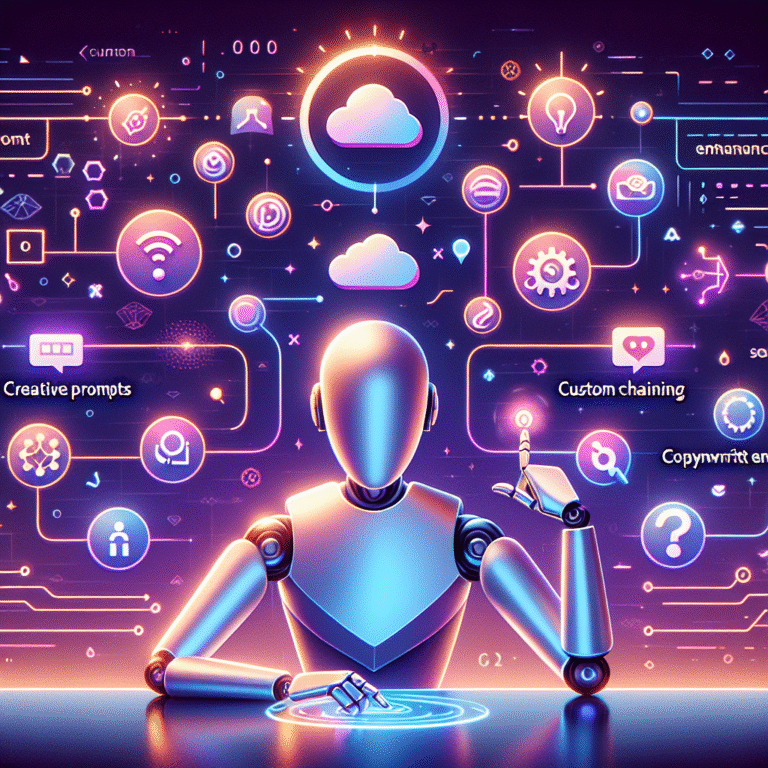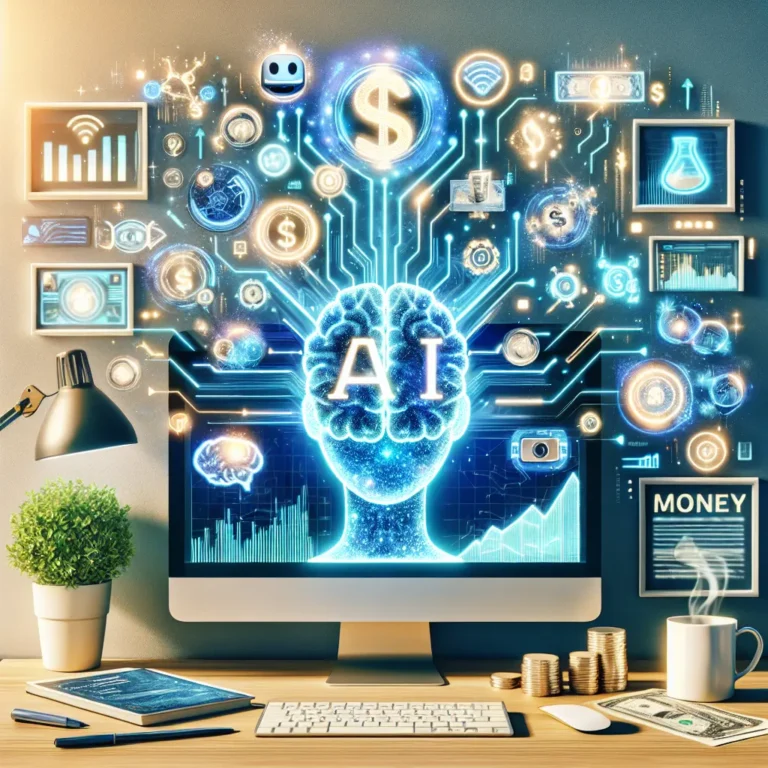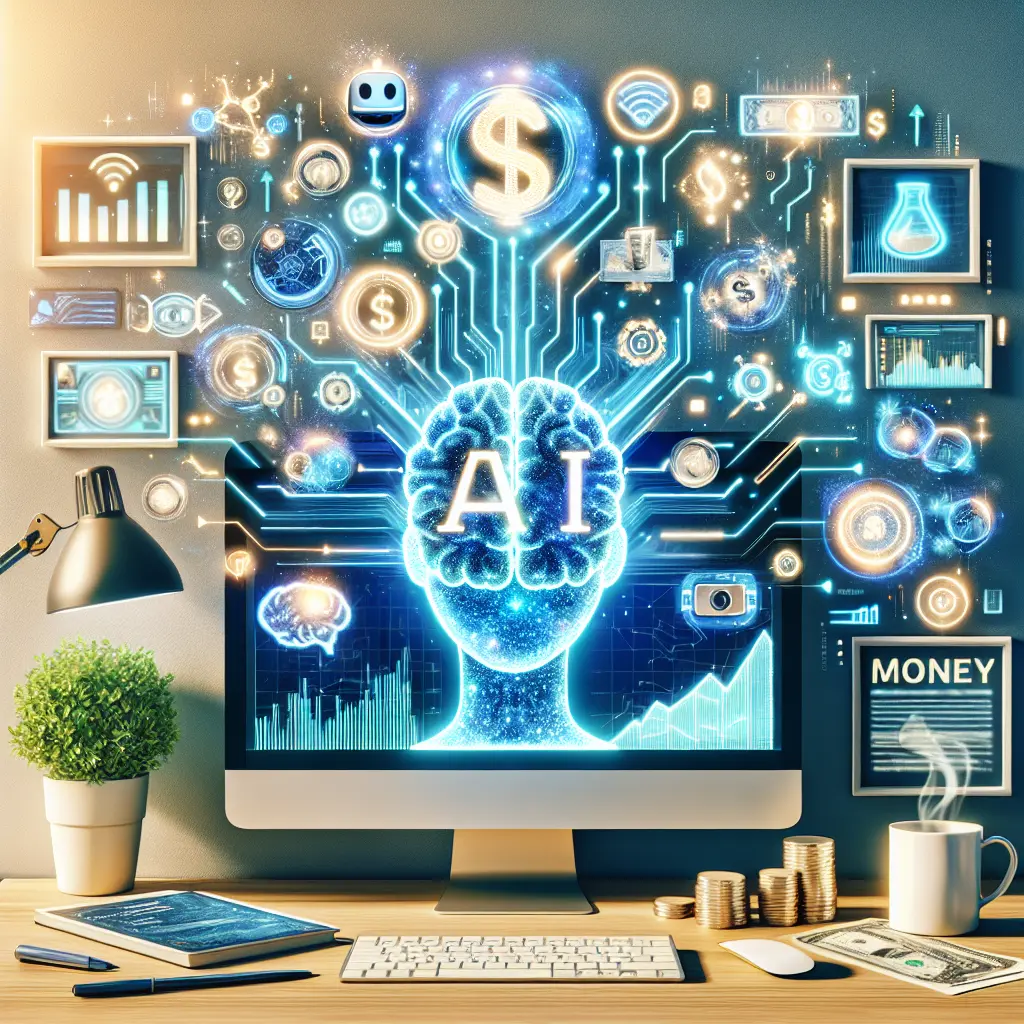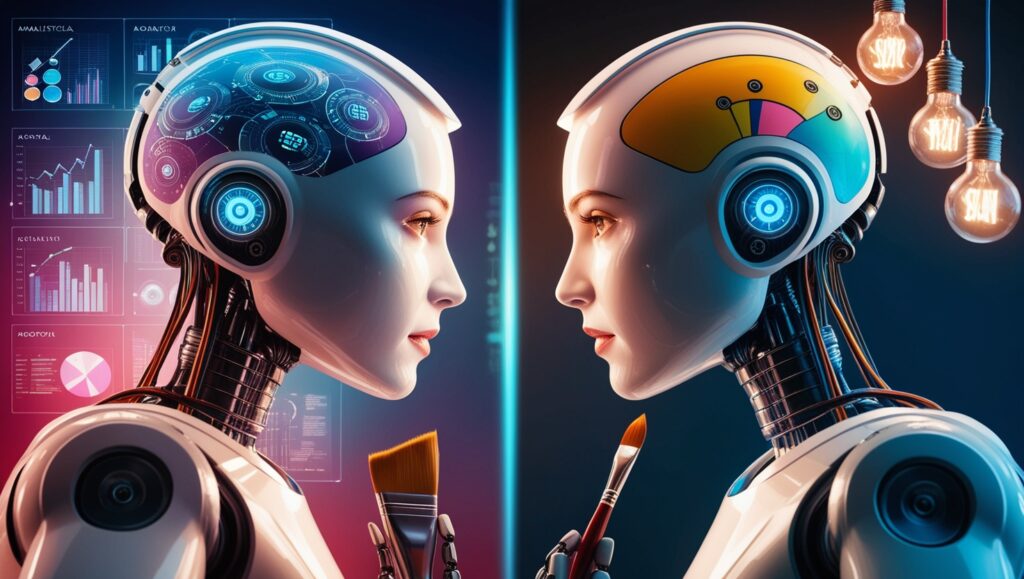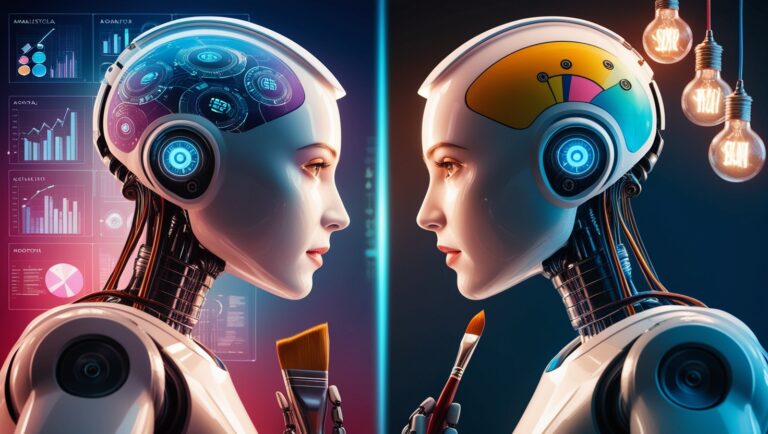The future of digital marketing is changing rapidly as businesses modify to the ever-evolving digital landscape. By 2024, new technologies such as voice search optimization, data-driven marketing, and artificial intelligence (AI) in digital marketing will have completely changed the way businesses interact and connect with their customers. For companies to remain competitive, they must adopt these trends and technologies as customer behaviour evolves toward online and mobile platforms.

Social media sites like Facebook, Instagram, TikTok, and LinkedIn promote creative marketing methods, and they continue to have an impact on the industry. Furthermore, businesses can now deliver customized services based on real-time data analysis thanks to the increasing efficiency of customization brought about by AI and machine learning. For businesses hoping to future-proof their digital marketing efforts, it will be vital to understand these changes as time goes on.
Introduction to Digital Marketing
Digital Marketing is the process of promoting products, services, or brands using online channels (like social media and search engines) and digital technologies. This form of marketing has revolutionized how businesses reach their targeted consumers, utilizing platforms like search engines, social media, emails, websites and apps to build brand awareness, drive traffic, and increase sales, The significance of digital marketing lies in its ability to measure results, target campaigns, and global reach – all essential in today’s business landscape.
In recent years, digital marketing has evolved into the core of business marketing strategy from being just an additional marketing tool. Businesses no longer rely solely on traditional methods of marketing like TV or print ads; they now integrate digital strategies to maximize their business reach to achieve higher engagement levels.
Evolution of Digital Marketing
The journey of digital marketing started with the introduction of the Internet in the 1990s. Initially, the website served as a digital brochure but soon with the advancement of technologies, search engines like Yahoo and Google changed the game by allowing businesses to appear in search results based on relevant keywords. This gave birth to Search Engine Optimization (SEO) as a fundamental practice in digital marketing.
In the 2000s, the rise of social media websites like Facebook, Twitter, and Orkut, allowed businesses to connect directly with their customers. Pay-per-click (PPC) advertising and email marketing also gained momentum during this period. By 2010, smartphones and mobile internet transformed the business landscape once again, with mobile marketing becoming essential. Fast forward to the current time, Artificial Intelligence (AI) and automation tools are shaping digital marketing’s future, making campaigns more data-driven and personalized than ever before.
Core Components of Digital Marketing
Digital Marketing consists of several interconnected elements, each critical to a holistic strategy:
- Search Engines Optimization (SEO): SEO involves the practice of optimizing website content to rank higher on search engines like Google, Yahoo, or Bing. SEO ensures that a business website appears in the relevant organic search results, driving traffic without direct advertising costs.
- Search Engines Marketing (SEM): Paid strategies such as Google Ads to increase the visibility on search engine result pages (SERPs).
- Social Media Marketing (SMM): Social Media Marketing involves paid advertisement on social media platforms like Facebook, Instagram, LinkedIn, and TikTok to build brand awareness and engage directly with the audiences.
- Content Marketing: Providing valuable, informative content to engage audiences, build trust, and convert them into customers.
- Email Marketing: A direct communication channel from personalized offers and nurturing relationships with customers.
- Pay-Per-Click Advertising(PPC): Paid advertisement on search engines and social media platforms that drive traffic through targeted ads.
Each component of digital marketing plays a vital role in reaching the right audience at the right time, contributing to a seamless marketing strategy.
Future of Digital Marketing
Driven by the rapid growth of technology and a growing emphasis on personalization, the future of digital marketing is promising. Technologies like Artificial Intelligence, Machine Learning, and data analytics are playing a pivotal role in transforming how marketers interact with customers, and deliver more targeted and meaningful experiences. AI-powered tools will automate various aspects of digital marketing, from content creation to customer satisfaction, helping businesses optimize their efforts and enhance customer engagement.
Additionally, the rise of voice-based search, Augmented Reality (AR), and blockchain technology will continue to shape the digital marketing landscape. Businesses will increasingly use immersive experiences and transparent, secure digital interactions to attract and retain customers. Moreover, the focus on ethical marketing practices which includes data privacy and sustainability will become crucial in establishing trust and long-term relationships with the customers.
Key trends for the future include:
- AI and Automation will continue to stream the marketing task, driving hyper-personalized and predictive analytics.
- Voice-based Search and Smart Devices will shift SEO strategies towards conversational queries and local search optimization.
- Augmented Reality (AR) and Virtual Reality (VR) will offer immersive and engaging experiences that will elevate the brand-customer interactions.
Importance of Data in Digital Marketing
Data is the backbone of modern digital marketing. The ability to collect, analyze, and act on data allows marketers to optimize marketing strategy, understand consumer behaviour, and improve targeting. Marketers understand the trends and predict the future behaviour of the market to drive better ROI on marketing campaigns with the help of tools like Google Analytics, HubSpot, and AI-powered platforms.
Technologies like Machine Learning and AI are increasingly used to predict outcomes, automate decision-making, and enhance personalization in marketing campaigns. Predictive analytics, customer segmentation, and real-time insights are now standard tools for any forward-thinking marketers.
The Impact of AI and Automation
Artificial Intelligence is revolutionizing digital marketing by automating repetitive tasks and improving the precision of marketing efforts. AI-driven tools help businesses create personalized customer experiences, predict purchasing behaviour, and even automate customer service with AI chatbots.
The ability of AI to process massive amounts of data means businesses can create content and ads more effectively. Marketing automation platforms like HubSpot or Marketo enable automated email campaigns, social media posting, and lead generation, reducing manual workload and enhancing efficiency.
Content Marketing Trends
Content remains the king in digital marketing, but the way it is consumed is evolving. Video marketing, for instance, is now a major focus, with short-form content on platforms like TikTok, Instagram Reels, and YouTube Shorts dominating user engagement. Interactive content such as polls, quizzes, and surveys, is also rising in popularity as it engages the users more deeply.
User-generated content (UGC), where brands encourage consumers to create and share their content, is another trend that is growing at a rapid speed. This not only fosters community but also provides brands with authentic content, boosting trust and reliability.
The Role of Social Media

Social Media has become an essential element of digital marketing strategies in today’s time. Platforms like Facebook, Instagram, LinkedIn, and Twitter enable businesses to connect with their audiences in unique and engaging ways. The shift of trend towards short-form video content, live-streaming, and influencer collaborations is reshaping how brands communicate.
For businesses, understanding platform-specific marketing strategies is key. Instagram fosters visual storytelling, while LinkedIn is a hub for professional networking and thought leadership. Each platform required tailored content and engagement tactics to maximize ROI.
Personalization in Digital Marketing
Personalization is no longer a bonus. It is an expectation. Consumers want relevant, personalized experiences from the brands as they engage with them. Technologies like dynamic content creation, behavioural targeting, and AI-driven personalization allow businesses to deliver messages to connect with their consumers.
This shift has led to a rise in customer-centric marketing strategies, where understanding the customers and their preferences enables the brands to create high-quality personalized user experiences.
Voice Search and its Influence
With the increasing use of voice-activated devices like Amazon Alexa and Google Assistant, voice search has become a trend in digital marketing. Optimizing content for voice search involves understanding natural language processing and adapting content to answer specific, conversational forms of queries. Marketers need to focus on local SEO and use exact, direct language to keep it ensure that their content is optimized for voice-based searches.
Mobile-First Marketing
With the increase in the use of mobile devices, marketers have to evolve their marketing campaign to target users on consume content through mobile devices. Mobbile-Firsrt Marketing prioritizes the mobile experience given that a majority of users now access the internet through mobile devices like smartphones and tablets. Responsive design, mobile-friendly content, and bile-specific advertising are critical in this type of marketing. Marketers also need to consider mobile apps, push notifications, and location-based marketing for better reach of audience on the go.
Privacy Concerns and Regulations
Data privacy has become a critical issue in digital marketing, especially with regulations like the General Data Protection (GDPR) in Europe and the California Consumer Privacy Act (CCPA) in the United States. Marketers must ensure that their business and contents are compliant with these laws, prioritizing transparency, consent, and security when collecting and using consumer data.
The Future of Influencer Marketing

Influencer Marketing continues to grow but is evolving towards smaller, more niche influencers. Nano and Micro-influencers, who have small yet highly engaging audiences are growing in the current scenario because of their perceived authenticity and trust toward their audience. Brands are now focusing on building a long-term partnerships with these trusted influencers who align with their values and audience rather than one-off promotional campaigns.
Use of Augmented and Virtual Reality in Digital Marketing
Augmented Reality (AR) and Virtual Reality (VR) are transforming how brands engage with their consumers. AR filters on social media, virtual try-ons for eCommerce, and immersive VR experiences are already becoming mainstream. These technologies offer new opportunities for marketing personnel to create advanced, interactive campaigns that enhance the engagement of customers.
Blockchain Technology in Digital Marketing
With Blockchain technology, consumers are more interacting with the brand as it ensures data privacy more than normal technology. Blockchain technology promises great transparency and security in digital marketing, particularly in areas like phishing, ad fraud prevention, data privacy, and supply chain transparency. By using these decentralized networks marketers can build trust with the customers, ensuring that their data is secure and ad fraud is minimized. Blockchain also gives consumers more control over their data, allowing them to choose who can access this information and even monetise it themselves. For example, Brave Browser’s Basic Attention Token (BAT) allows users to earn rewards for opting into ads, changing the dynamic of digital advertising.
The Future of SEO and Search Engines
The scenario of EO is evolving rapidly, driven by advancements in artificial intelligence and evolving user behaviour. Google’s algorithms, now powered by AI (like BERT and MUM), are focused on understanding the context and intent behind the search queries rather than relying purely on search keywords. With this shift, it means that marketers need to focus towards creating high-quality, authoritative content that provides real value to the users, rather than merely optimizing for specific search terms.
Another trend that is growing nowadays is zero-click searches, where users find the answers to their queries directly from the search Engine Result Page (SERP) without clicking on any link in the search result. Featured snippets, local packs, and knowledge graphs are taking precedence making it crucial for businesses to optimize content for these features. Additionally, visual search, where users search using images instead of text, is expected to rise, further impacting SEO strategies.
Omnichannel Marketing Strategies
Omnichannel Marketing is about creating a seamless customer experience across digital and offline channels. This integrated approach ensures that whether the customers interact with the brand via social media, email, website, or in-store, they receive a consistent message and experience.
The future of omnichannel marketing will involve more with the synchronization between online and offline activities. Technologies such as IoT (Internet of Things) are playing a vital role in bridging the gap between physical and digital experiences. Businesses need to ensure that the customer’s data is properly integrated across different channels for marketing to deliver hyper-personalized and seamless experiences.
The Rise of Programmatic Advertising
Programmatic advertising is an automated buying and selling of online ads, and it is becoming a standard in the industry. Real-time bidding is allowing marketers to target specific audiences with great accuracy and at a large scale. Programmatic advertising uses AI technology and data to find the best advertising opportunities, offering advertisers better control over their budgets which helps in the improvement of ad efficiency.
With the advancement of this technology, programmatic advertising will also expand into new formats such as digital out-of-home (DOOH) advertising, and even voice and connected TV (CTV) ads. The future of programmatic advertising will see more creative, data-driven campaigns that are high in accuracy, which target the right audience and ads that are hyper-personalized.
Importance of Video Contents
Video content dominated the digital marketing landscape. With platforms like YouTube, TikTok, and Instagram focusing heavily on video, businesses are shifting their efforts toward creating high-quality video-driven marketing strategies. Short-form video content, in particular, is gaining attraction due to its ability to capture audience attention quickly.
In future, I’ve streaming will also become a critical component of video marketing. Brands are using live video to showcase the launch of new products, behind-the-scenes events, and real-time interaction with audiences. Additionally, the use of platform-specific strategies (e.g., YouTube SEO, and TikTok trends) will play a key role in video success.
Ethical Considerations in Digital Marketing
With the evolution of digital marketing, it faces more ethical challenges. Increasingly, consumers are demanding that campaigns demonstrate ethical behaviour, including sustainability practices, diversity in advertising, and corporate social responsibility.
By being inclusive and avoiding stereotypes, marketer needs to ensure that their campaigns reflect these values. Additionally, transparency in data collection and usage of data, as well as a commitment to consumer policy, are becoming non-negotiable in an age of heightened awareness around ethical business practices. Ethical marketing will help brands to build trust and loyalty among their audiences.
Conclusion
Digital Marketing is supposed to grow further in the future, but it is also set to become more complex and data-driven. The future will be shaped by emerging new technologies like artificial intelligence, machine learning, augmented reality, and blockchain, which will revolutionize how businesses and brands connect with their targeted consumers.
Personalization, data privacy, and seamless omnichannel experiences will be at the forefront of successful marketing strategies. Businesses that focus on innovation while staying grounded in ethical practices will find themselves thriving in this dynamic, digital-first world.
However, with the rapid growth of technology, marketers will face increased competition and the need for marketers to constantly adapt. Success in the future of digital marketing will require businesses to be agile, data-driven, and above all, customer-centric.
What is Digital Marketing?
Digital Marketing is a form of advertising through online channels such as websites, search engines, social media, and email to promote products or services. It encompasses strategies like SEO, content marketing, and social media advertising to reach and engage with customers.
How is AI changing digital marketing?
AI is automating many aspects of digital marketing, such as content creation, customer services via chatbot, and personalized recommendations. It’s also being used in data analysis to predict consumer behaviour and improve campaign targeting.
What is programmatic advertising?
Programmatic advertising is the automated buying and selling of online ads, which uses AI to optimize ad placement in real-time. It allows marketers to target specific audiences more precisely and at a large scale.
How important is personalization in digital marketing?
Personalization is crucial in digital marketing because it creates tailored experiences for consumers, improving engagement and conversion rates. with AI tools we can create highly personalized marketing, such as product recommendations based on the past behaviour of the consumer or dynamically change the content of the website.
What are Zero-Click Searches?
Zero-click searches occur when users find the information they’re looking for directly from the Search Engine Result Pages without having to click through to a website. Examples include featured snippets, local search results, and knowledge graphs.
How does voice search affect digital marketing?
Voice search is changing how people search for information, leading marketers to optimize their content for conversational queries and natural language. This shift requires focusing more on long-tail keywords and local SEO.

